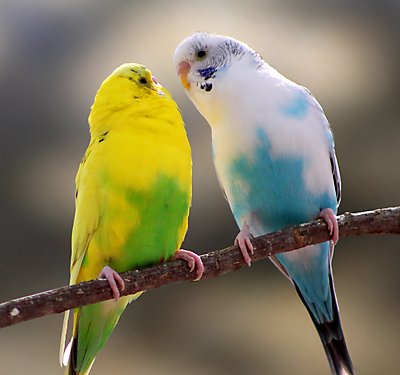Rise by Six: Your Daily Dose of Inspiration
Explore insights and stories that elevate your day.
Birds of a Feather: Care Tips That Soar
Discover essential care tips for your feathered friends and watch your love for birds soar! Unlock the secrets to happy, healthy pets today!
Essential Tips for Keeping Your Feathered Friends Happy and Healthy
Keeping your feathered friends happy and healthy is essential for their well-being and longevity. Here are some essential tips to ensure your pet birds thrive:
- Provide a Balanced Diet: Birds require a diverse diet that includes seeds, fresh fruits, and vegetables. Avoid over-relying on seeds alone; instead, aim for a well-rounded mix that promotes good health.
- Regular Veterinary Check-ups: Just like any pet, birds need regular check-ups with an avian vet. This helps identify any health issues early and allows for preventive care.
- Social Interaction: Birds are social creatures; they need daily interaction and mental stimulation. Engaging with your birds through play or letting them interact with other birds can help prevent loneliness and stress.
In addition to the basics, maintaining a clean and safe environment is crucial. A dirty cage can lead to health issues:
- Daily Cleaning: Spot clean your bird's cage daily to remove waste and uneaten food. A deeper clean should be done weekly to ensure a healthy living space.
- Safe Toys and Perches: Provide various safe toys and perches to keep your birds mentally stimulated and physically active. Rotate toys regularly to keep their environment interesting.
By following these essential tips, you can create a nurturing environment that allows your feathered friends to live happy and healthy lives.

Understanding Bird Behavior: What Your Pet is Trying to Tell You
Understanding bird behavior is essential for pet owners who wish to foster a deeper connection with their feathered companions. Birds communicate in various ways, utilizing vocalizations, body language, and even their environment to express their feelings and needs. For instance, a chirping can indicate happiness or excitement, while a sudden silence might suggest that your pet is feeling threatened or unwell. Familiarizing yourself with these signs can greatly enhance your relationship and help identify any potential issues.
Moreover, observing your bird's body language can provide critical insights into their emotional state. When a bird raises its feathers, it may signal contentment, whereas a bird exhibiting wing flapping could be displaying agitation or stress. Therefore, paying attention to these subtle cues allows you to respond appropriately and create a safe, nurturing environment for your pet. By understanding bird behavior, you not only improve their quality of life but also enrich your own experience as a pet owner.
What Do Birds Need for a Balanced Diet?
Birds require a balanced diet to maintain their health, energy levels, and overall well-being. Key components of a balanced diet for birds include proteins, carbohydrates, fats, vitamins, and minerals. For instance, seeds and nuts offer essential fats and proteins, while fruits and vegetables provide necessary vitamins and minerals. Grains can also serve as a good carbohydrate source. It is important to remember that different bird species have unique dietary needs; therefore, understanding the specific requirements of each species is crucial.
In addition to the core components, it's essential to incorporate variety into a bird's diet to prevent nutritional deficiencies. Consider the following foods for a more diverse diet:
- Leafy greens such as kale and spinach for vitamins.
- Pelleted diets, specifically formulated for your bird's species.
- Fruits like berries and apple slices as treats.
- Mealworms or other insects for protein.